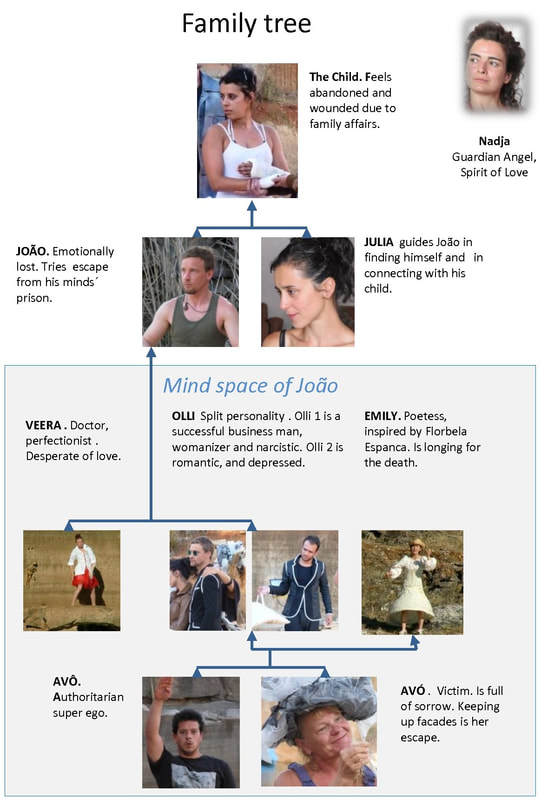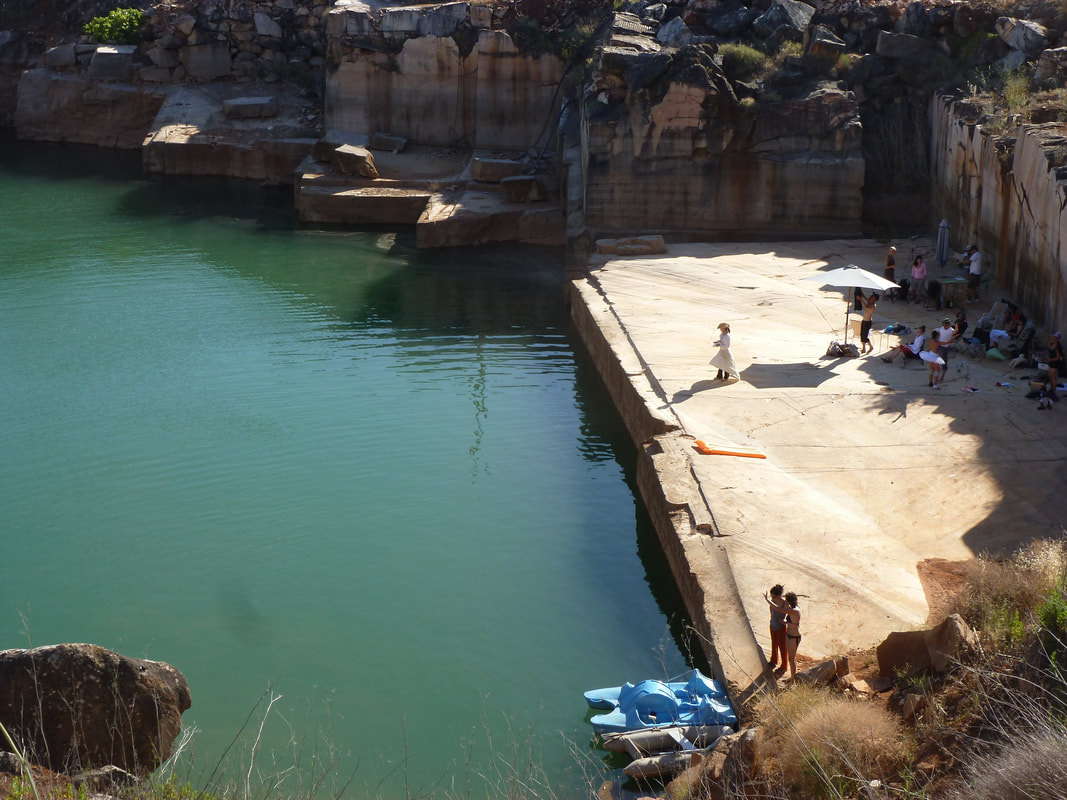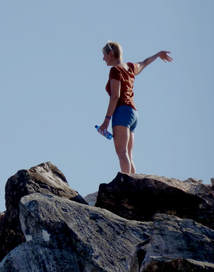Divina Commedia 2.0
some background info
|
Divina Commedia 2.0
July 2012, Gradinha quarry. Vila Viçosa, Portugal In the 14th century Dante Alighieri wrote an epic poem: Divina Commedia, about a person in crisis, making a journey from hell via purgatory to heaven. In this performance the theme is similar: a family is in deep crisis. The drama tells about a child, her mother and her father: João. João is “lost” in his life and disconnected from his child: his mind is full of obsessions and conflicts. It is a machine, creating sounds with no meaning. We follow João in his attempts to understand his mind and to step out of his mind’s prison, into a world with more harmony, love and beauty. Lots of metaphors are used in this piece. Most family members symbolize parts of a wounded mind: the super-ego, the perfectionist, the schizophrenic, the abandoned and so on. The quarry itself symbolizes the whole mind: a world of beautiful and ugly feelings, inviting as well as inaccessible, with clear and dark corners, a hell and heaven. A mayor source of inspiration was the life and poems of Florbela Espanca, a poet, living in the beginning of the 20thcentury in Vila Viçosa. Another course of inspiration is the life of the scriptwriter and director of the project: Mirra Sippola. Director and script: Miira Sippola. Atores / Actors: Guardian angle: Nantia Papatheodorou Avô: Fábio Moreira Avó: Idalotta Backman Veera: Ulla Raitio Olli 1: Jaakko Kiljunen Olli 2: André Salvador Emily: Yuko Takeda João: Tuomas Tulikorpi Julia: Susana Nunes The Child: Diana Niepce Citizens: Sofia Ramos, Tania Chita, Vicente de Sá, Jõao Bandeira Scenographer: Aili Ojalo Light designer: Anaísa Guerreiro. Sound designers: Sérgio Martins, Rui Lima. Costume designer: Sara Machado da Graça. International Coordinaton: Myllyteatteri. Local Producer: Escrita na Paisagem. Initiator, co-producer, sponsor, hosting and general support: Foundation OBRAS Host of the performance: Camara de Vila Vicosa |


